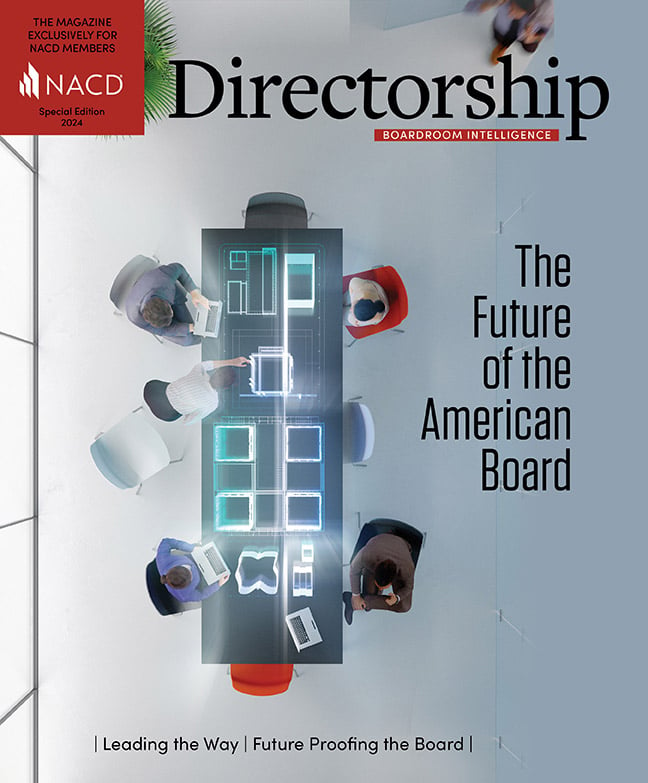Governance Surveys
Directorship Magazine
CEO Letter
The Best Governance Principles for Facing Your Company’s Future
Probably the most frequent word I’ve heard this year has been “uncertainty.” The last few years have been challenging to say the least, and we all know that more challenges lie ahead. Some foreseeable challenges include the continuing economic volatility that has been upon us for the last several years. For example: How can boards and CFOs plan for their financial future if the same Federal Reserve that promised a “higher for longer” policy back in September is now rumored to be planning rate cuts? How can boards and general counsel plan for their companies' regulatory future when the two leading candidates for president are diametrical opposites who are running dead-even right now? How can directors oversee supply chains when no one can predict the price of oil, and no one knows how long the wars in Ukraine and Gaza will last or how they may spread? How can directors include climate change in their strategies when it seems that every new study reveals that the planet is getting hotter much faster than predicted, with previously unforeseen results. And how can directors approving major technological investments ensure cybersecurity within a brand-new regulatory disclosure framework, while anticipating trends out of left field in artificial intelligence (AI), quantum computing, and other emerging technologies?
The questions are rhetorical, of course. Directors can try to do these things, but their success is far from assured. Yet although the future facing American boards may be less predictable than ever, it is also more navigable than ever, because of the long years of steady preparation that directors have done to improve their own performance—and in the process to become more adaptable to change. In the almost quarter century that I have served the NACD, I have seen dramatic progress delivered via our Blue Ribbon Commission reports, beginning with the then-radical concept of “professionalism” and moving on to such topics as direct board involvement in strategy; board-driven risk oversight; board and director evaluation; board diversity; board culture; and in recent years director certification.
At a time when many boards may be tempted to start recruiting narrow specialists to the board, and hiring forecasters galore, it may be helpful to recall the hopeful words attributed to American anthropologist Margaret Mead: “Never doubt that a small group of thoughtful, committed citizens can change the world. Indeed, it’s the only thing that ever has.”
Boards need to adapt to ensure that they are well-positioned for exercising their significant governance responsibilities. They will need to challenge their own workings and spur boardroom conversations about their own performance to position their companies for success today—and tomorrow. ■


President and CEO of NACD


